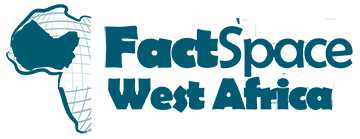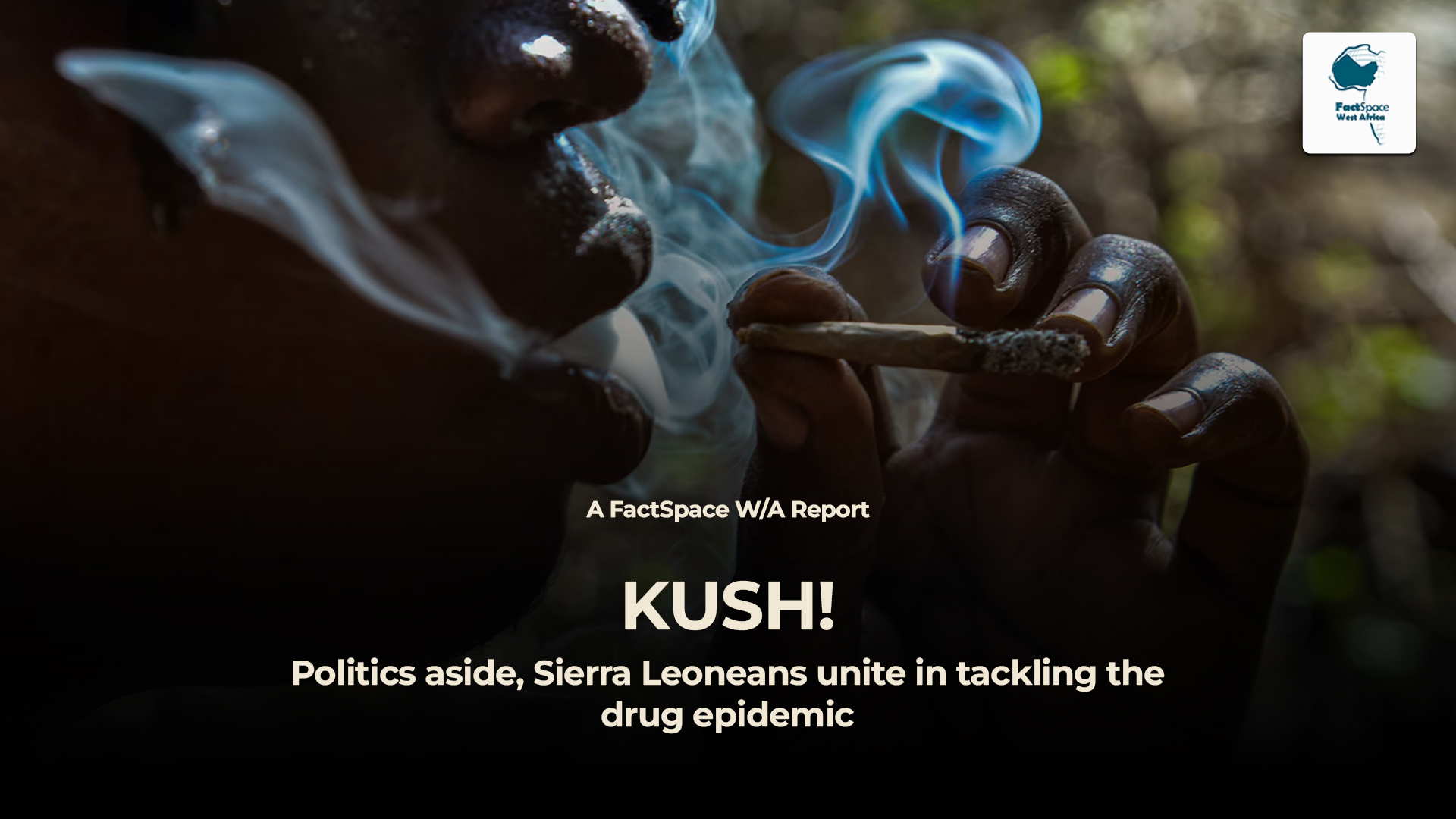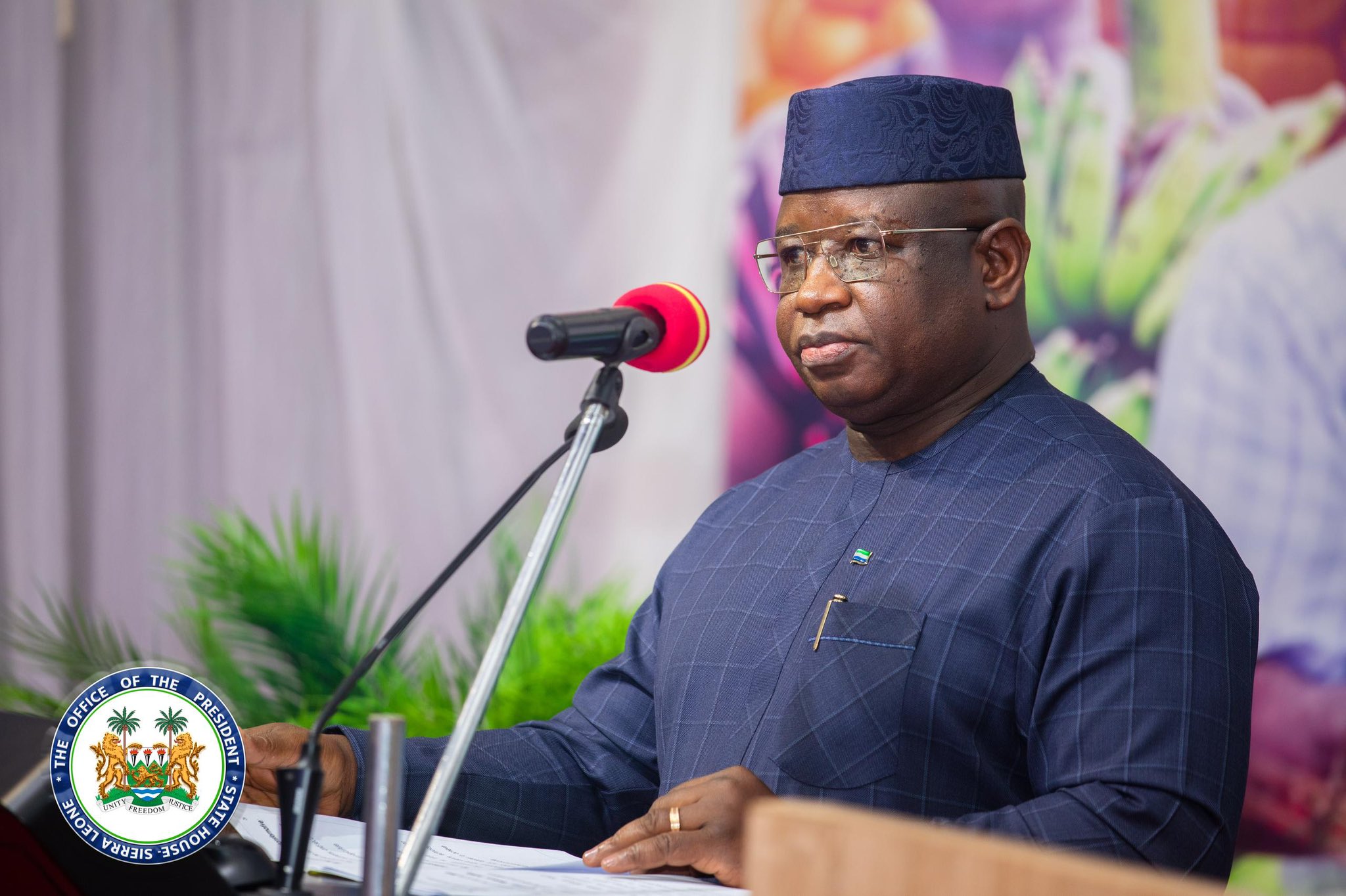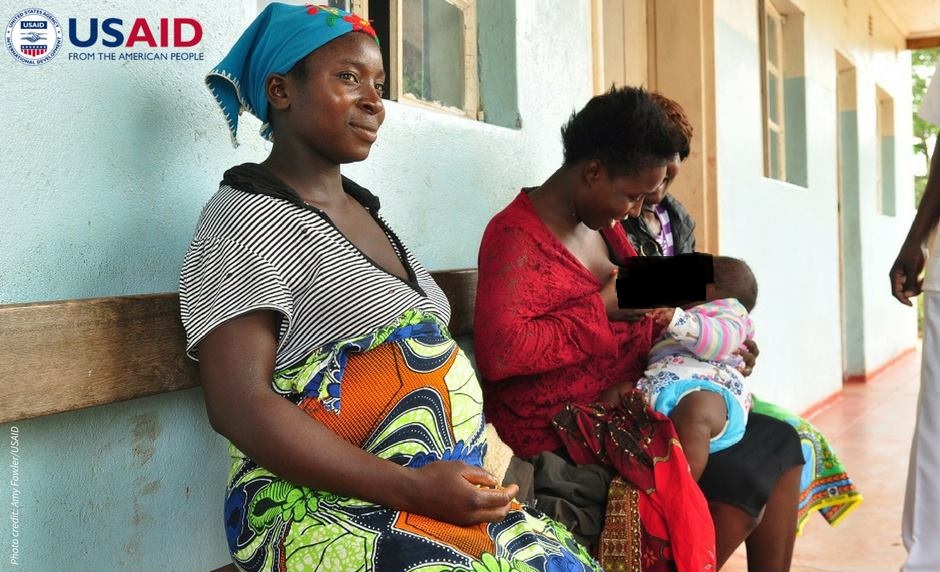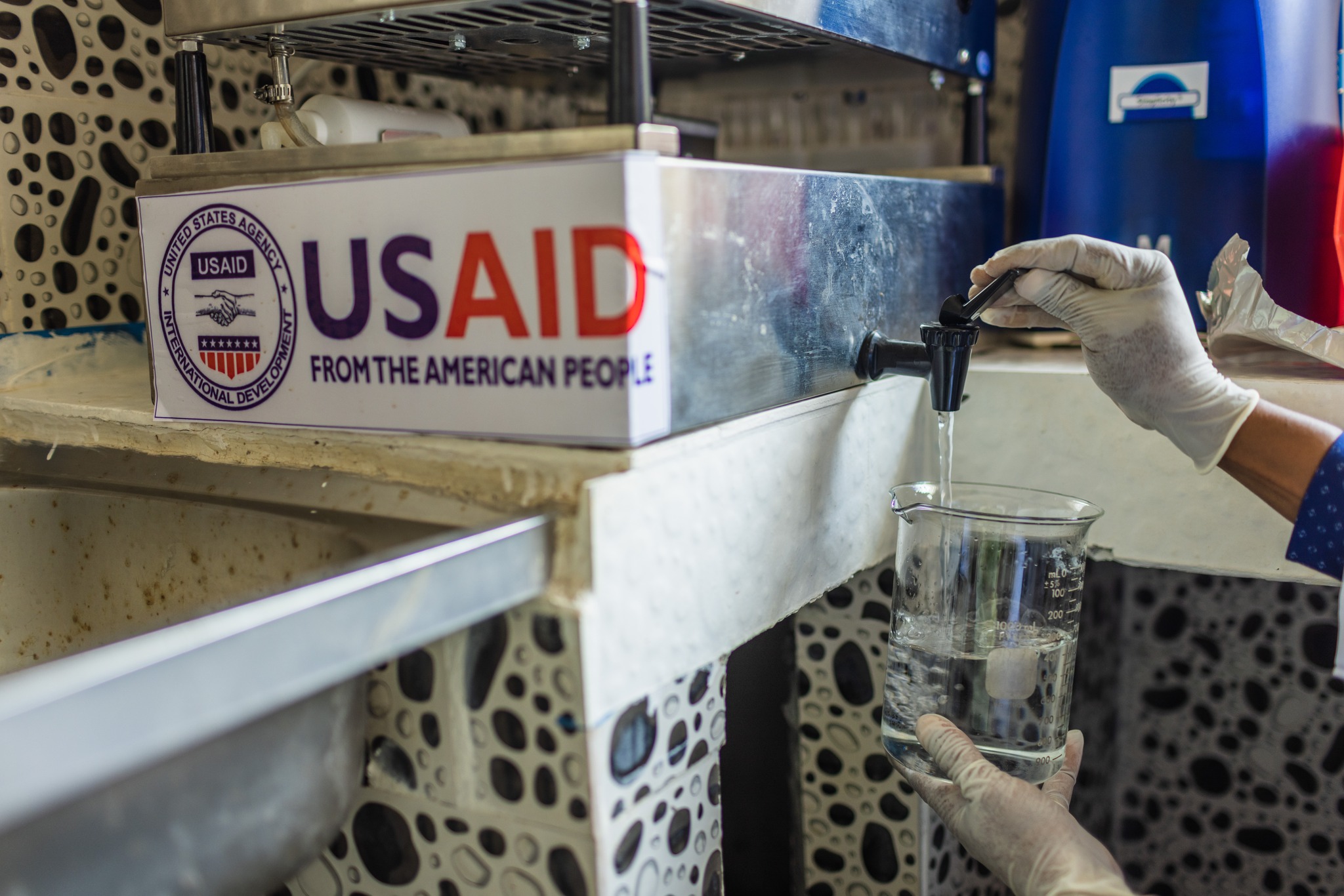Following a disputed presidential election and an attempted coup d’état in Sierra Leone, the country remains sharply divided with a persistent social undercurrent.
However, on social media, Sierra Leoneans are united in their demand for the government to stamp out widespread abuse of “Kush”, an illicit drug that is ravaging many communities, resulting in several deaths and mass burials of unidentified victims.
An analysis of online conversations has shown growing disillusionment among Sierra Leoneans about the government’s ability to tackle “Kush” abuse and addiction vigorously.
In April 2024, the President of Sierra Leone (Dr Julius Maada Bio) declared a national public health emergency on substance abuse aimed at rooting out the drug epidemic plaguing the country.
FactSpace West Africa (W/A) collected and analysed data on the subject from X.com (formerly Twitter) and Facebook using social media analytics tools, Brandwatch and Crowdtangle, covering the period from June 1, 2023, to June 24, 2024. Here are some of the highlights:
- From the X.com dataset, Kush returned 4,752 total mentions from 1,269 unique authors during the period under review compared to 2,497 posts on Facebook. The Facebook dataset comprised 456,495 interactions (comments, shares, reactions) This can partly be explained by the fact that most social media users in Sierra Leone are on Facebook (86%).
- The highest social media engagement on the subject was recorded on March 18, 2024 – 48,000 interactions recorded on Facebook and 186 mentions on X. Checks by FactSpace W/A showed that attacks on Kush hangouts by local vigilante groups across the country partly increased online commentary on the subject (see example posts here, here.)
- Three mass burials of about 50 unidentified Kush victims in five months provoked widespread outrage online (see example posts here & here).
- Sierra Leone’s security services (prisons, police and military) are not free from the Kush epidemic.
- Some netizens have demanded that the government stop the illegal importation of the synthetic drug – “Kush”.
Kush in Sierra Leone
About six out of every 10 cases of drug abuse in Sierra Leone‘s only psychiatric hospital in 2023 was linked to the highly addictive synthetic drug – “Kush”- reaching a crisis level.
Not just in Sierra Leone, the illicit drug is causing significant havoc across parts of West Africa, including in countries like Liberia and The Gambia.
Kush is a mixture of cannabis, fentanyl, tramadol, and crushed human bones. “Formalin is used to embalm dead bodies. Because the chemical seeps into the bone and can stay there for many years, they (Kush users) resorted to digging up bones, which they grind and add to the concoction to smoke”. This was explained by Mustapha Kella, a Psychosocial Counsellor with Social Linkages for Youth Development and Child Link (SLYDCL), an organisation that supports people addicted to drugs.
Widespread addiction to the drug continues to destroy many communities in Sierra Leone, leading to the deaths of hundreds of young men and women, according to reports.
The National Union of Sierra Leone Students (NUSS) has also expressed grave concerns about the levels of drug abuse among university students across the country.
On social media, several videos and images have been shared of Kush addicts including children, men and women in a semiconscious state, sometimes motionless or staggering, and with some having bodily injuries.
Rising poverty and high unemployment are partly being blamed for the crisis, as users seek relief from their frustration by taking drugs.
Others have suggested the culture of drug abuse in Sierra Leone is linked to the country’s 11-year brutal civil war (1991-2002). The abuse of hard drugs by armed child soldiers and rebel groups was attributed to the level of brutality in the form of indiscriminate killings and amputations of innocent civilians.
Many of these young people continue to abuse drugs after the war, partly due to inadequacies of the rehabilitation and reintegration programmes targeted at the ex-combatants.
The storied history of drug abuse in Sierra Leone has now reached crisis levels, with many Sierra Leoneans online demanding the government fixes the problem.
Social media analysis
Using Brandwatch and CrowdTangle, Factspace W/A has analysed the online conversations about Kush on social media in Sierra Leone, distilling the narratives and actors driving the commentary.
On X.com, Kush had 4,752 total mentions from 1,269 unique authors from June 1, 2023, to June 24, 2024, as compared to 456,495 interactions (comments, shares and reactions) from 2,497 posts on Facebook (collected from Crowdtangle) over the same period.
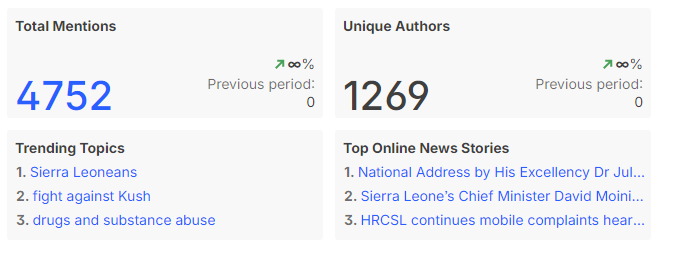 Figure 1: Analysis of total mentions and unique authors on the Kush discourse (Brandwatch)
Figure 1: Analysis of total mentions and unique authors on the Kush discourse (Brandwatch)
 Figure 2: Time-series analysis of total Facebook interactions on the Kush discourse (Crowdtangle)
Figure 2: Time-series analysis of total Facebook interactions on the Kush discourse (Crowdtangle)
On March 18, 2024, the interactions on the subject on social media reached its peak with – 48,000 interactions recorded on Facebook and 186 mentions on X.
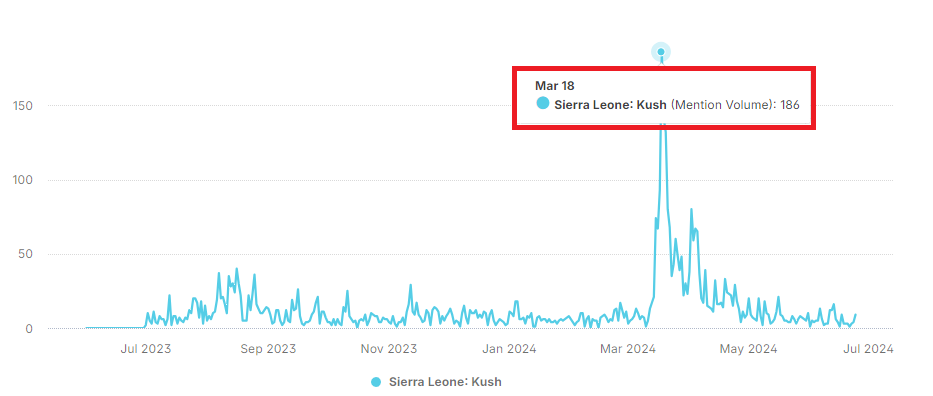
Figure 3: Time-series analysis of the highest single-day interaction on Kush on X
 Figure 4: Graph showing interactions and number of posts on Facebook between June 2023 and June 2024
Figure 4: Graph showing interactions and number of posts on Facebook between June 2023 and June 2024
The visual above, aside from the volume of interactions and posts, also gives a time-series analysis of online conversations over the duration under review. There was a significant surge in online engagement on Kush on March 18, 2024, as compared to other days over the one year assessed.
From the social media analysis, several online and offline campaigns might have contributed to putting pressure on the government to declare a State of Emergency on substance abuse.
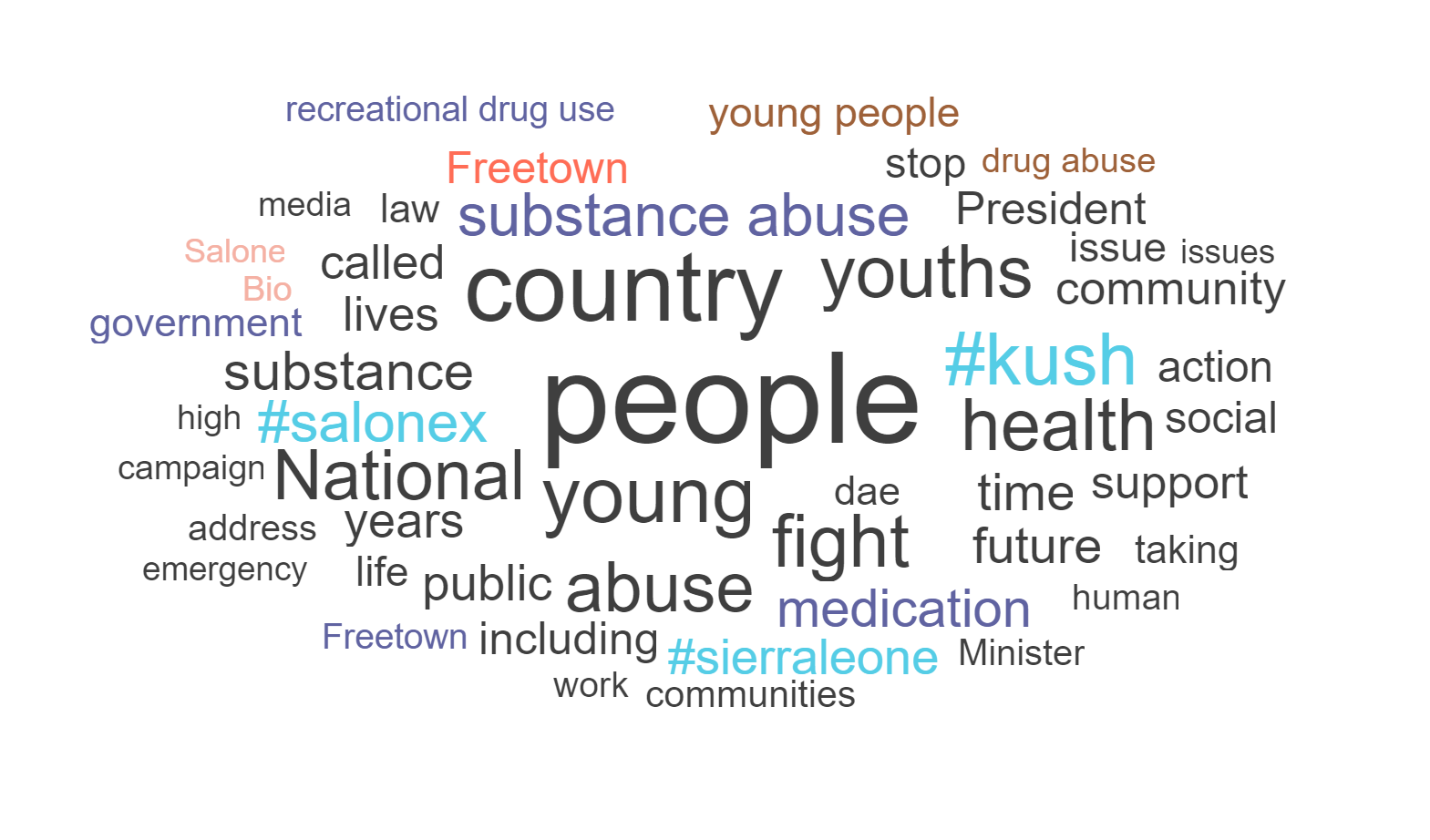 Figure 5: A word cloud of key topics on X associated with the Kush debate
Figure 5: A word cloud of key topics on X associated with the Kush debate
In March 2024, videos of a mass burial of 32 Kush victims were widely circulated on social media and according to the volunteer burial group that conducted the exercise the bodies were picked up from across the capital city, Freetown.
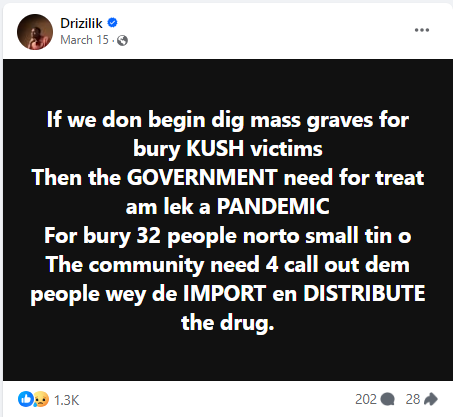 Figure 6: Screenshot of Facebook post lamenting Kush crisis while critiquing government
Figure 6: Screenshot of Facebook post lamenting Kush crisis while critiquing government
Twelve unclaimed bodies were also buried in November 2023 at the King Tom Cemetery in Freetown, with their cause of death linked to the abuse of Kush.
The mass burials provoked widespread outrage and condemnation of the government for not showing enough interest to contain the situation (see example posts here, here, here, here.)
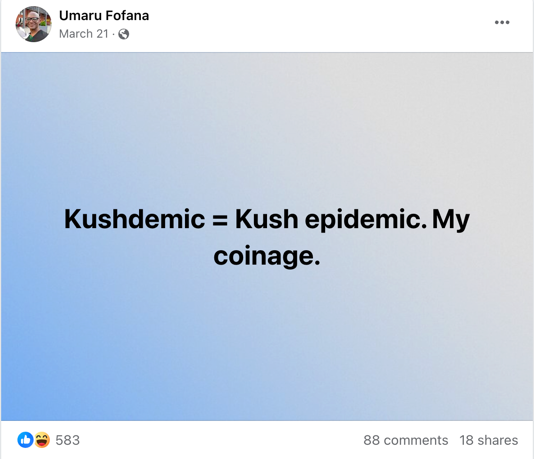
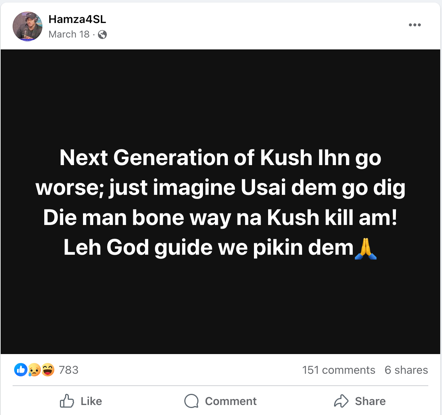
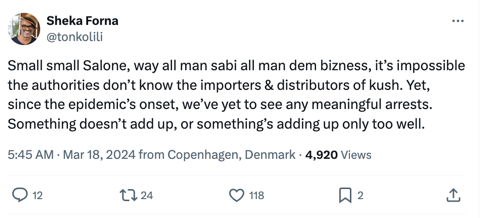
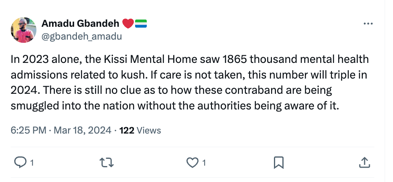 Figure 7: Facebook and X users lamenting Kush crisis
Figure 7: Facebook and X users lamenting Kush crisis
In some communities, young people organised themselves into vigilante groups and attacked suspected drug dealers, while arresting addicts and giving them a clean shave (see example posts here, here, here, here, here and here.)
Following the increased online engagement between March 17 and March 23, 2024, there seemed to have been a shift in the government’s approach to dealing with the crisis. This came in the shape of increased police raids of suspected Kush hangouts, the hosting of a town hall meeting on Kush, and eventually the declaration of a state of emergency on substance abuse.
On X.com, users were particularly critical of the government’s inability to stop the importers of the drug.

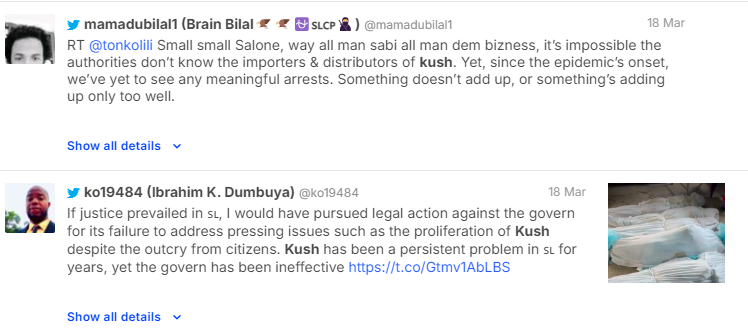
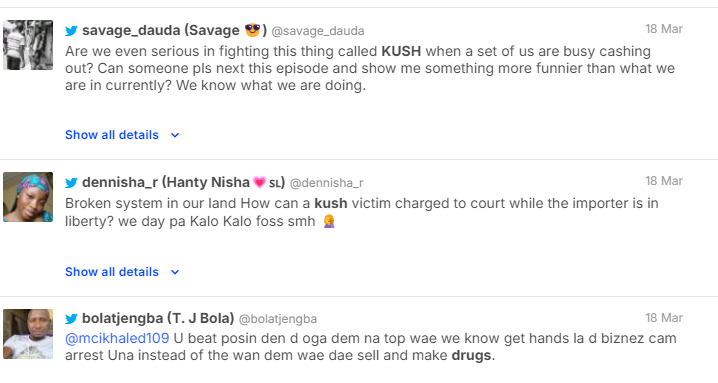 Figure 8: X users calling out the government for not stopping the importation of Kush
Figure 8: X users calling out the government for not stopping the importation of Kush
On Facebook, posts were mostly seeking to expose the harmful effects of Kush coupled with several advocacy efforts including short videos and songs seeking to discourage the youth from abusing drugs.
A number of videos online showing officials of the military and police allegedly high on Kush is feeding into speculations online that members of the security agencies are complicit in the sale of the drug.
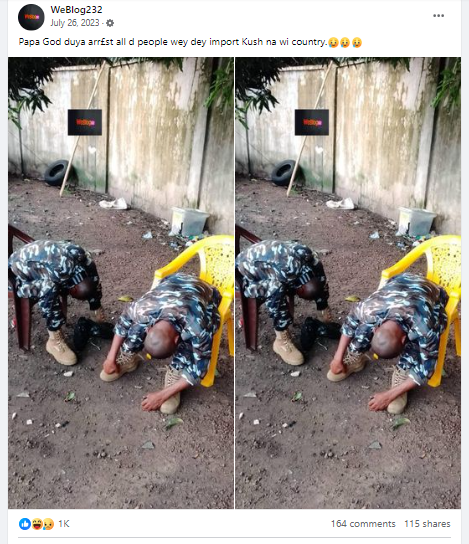 Figure 9: A widely-shared video of police officers allegedly under the influence of Kush
Figure 9: A widely-shared video of police officers allegedly under the influence of Kush
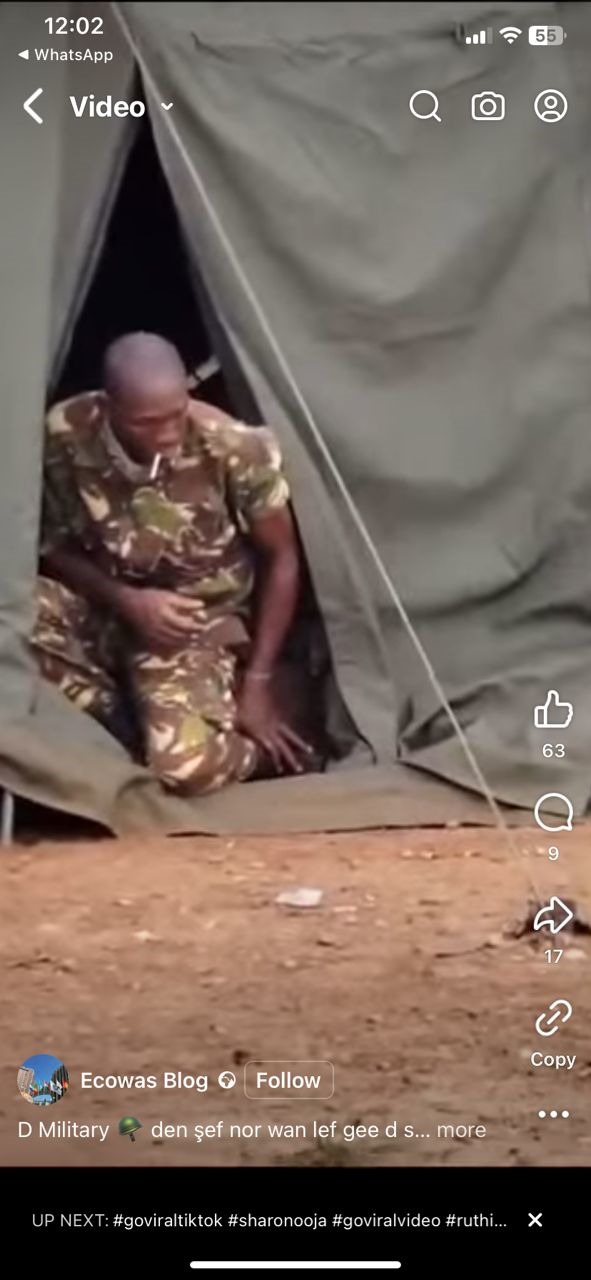 Figure 10: A video showing a military officer in Sierra Leone hooked on Kush
Figure 10: A video showing a military officer in Sierra Leone hooked on Kush
On Sunday, April 21, a video was shared on social media showing authorities in the main prison facility in Freetown intercepting a prison officer trying to smuggle Kush to be sold to the inmates (see example posts here, here, & here).
This is being used to reinforce public perception online about the role of members of the security agencies in the proliferation of drugs in prisons and across the country.
Government’s plan
The President of Sierra Leone, Dr Julius Maada Bio has described the drug crisis as an existential threat to the country.
“We are witnessing the destructive consequences of Kush on our country’s very foundation, our young people, despite the government’s effort to stop the proliferation of drugs,” he said as part of the declaration of a national public health emergency on substance abuse.
According to the statement, the government’s approach going forward will be based on five strategies: Prevention, Care and Treatment, Social Services support, Law Enforcement, and Community Engagement.
Meanwhile, two days before the President’s declaration, a container full of chemicals used to manufacture Kush was intercepted and eight people have so far been detained in connection with this consignment.
This adds to growing calls for a thorough investigation into how the drug finds its way into Sierra Leone.
Hours before the presidential pronouncement of a state of emergency on drugs, the police mounted a raid on the home of a relative of the President, Admire Bio, who is among those who have been repeatedly named as suspected importers of Kush. However, the police later indicated that nothing of interest was found after the raid. That left many tongues wagging about the seriousness of the police in conducting the raid.
The Sierra Leonean Parliament in mid-March summoned officials of various Ministries, departments and agencies relevant to efforts against the drug crisis, to discuss the issue. The parliamentary hearing involved the Inspector-General of Police, William Fayia Sellu.
There have been concerns about police and other security officers abusing drugs which is feeding suspicion about the involvement of the police in the drug trade.
However, between March and April, about a dozen security officers, both police and soldiers, have been dismissed for consuming Kush, according to reports.
“We live in constant fear in this community. The Kush users are lurking around, waiting for the slightest opportunity to cart away any valuable item that can fetch them any amount of money to buy Kush,” Fatmata Tejan, chair lady of Limba Corner, a suburb of Rokel Village in the outskirts of Freetown, told Factspace West Africa.
The Rokel community, under pressure from Kush users, mobilised themselves and invited the Community Affairs Department of the Sierra Leone Police to visit known drug dealing hotspots as a way of warding them off.
Youth leader of the community, Sulaiman Mansaray, said among several occurrences, the desecration of their cemetery forced them to act.
“The boys had dug several graves in the cover of night and extracted the bones of our loved ones. That forced us to stand up and do something about the situation,” he said.
“The drug rehabilitation centre is one indication that the government has been doing something,” said Rtd Brigadier-General David Taluva, Minister of Internal Affairs.
Brig. General Taluva said on Saturday, April 16, 2024, during a ceremony marking the discharge of the rehabilitated former drug addicts that through operations by the Sierra Leone Police, they have rounded up at least 500 former drug users who immediately need space in the rehabilitation centre.
Conclusion
Kush, has undoubtedly proven to be a unifier of Sierra Leoneans irrespective of their religion, gender, social class and political affiliation.
The call for the government to act has been loud and forceful, particularly on social media.
Despite the government’s recent attempts to contain the Kush epidemic, online critics maintain more needs to be done to treat and rehabilitate the high number of addicts and for the government to prove their genuine commitment to dismantling the underground economy behind the drug trade.
By: FactSpace West Africa
